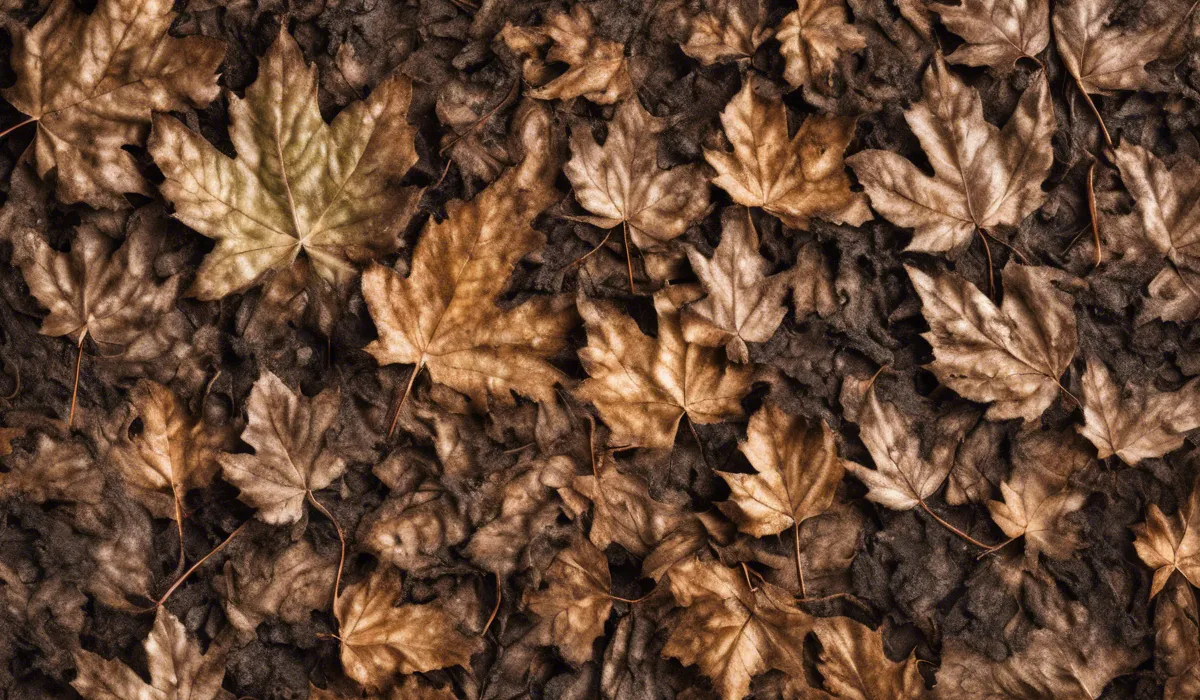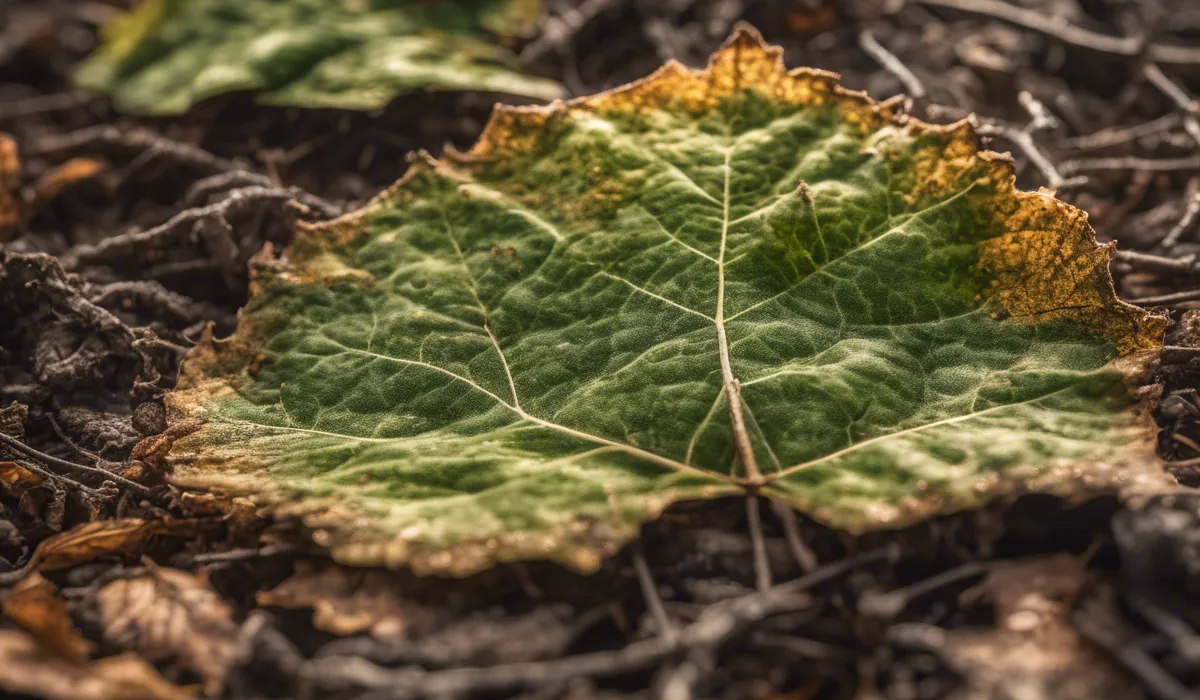Yes, leaf mold can make you sick. It contains mold spores, which, when inhaled, can cause allergic reactions or respiratory issues, especially in sensitive individuals or those with mold allergies. Avoid prolonged exposure and wear a mask when handling.
Understanding Leaf Mold and Its Impact on Health

Definition of Leaf Mold
Leaf mold is a type of compost primarily made from decomposed leaves. It is a rich, dark, crumbly material that gardeners often use to improve soil health.
Unlike other composts that include a variety of organic materials, leaf mold is the result of a specific fungal decomposition process that breaks down fallen leaves over time.
Composition and Development Process
The development of leaf mold begins when leaves fall to the ground, creating a natural habitat for fungi.
Over time, these fungi, along with bacteria and microorganisms, work together to break down the leaves’ cellulose and lignin.
This process can take anywhere from six months to two years, depending on conditions such as moisture and temperature.
Common Types of Fungi in Leaf Mold
Fungi such as Penicillium, Aspergillus, and Cladosporium are often found in leaf mold.
These fungi play a crucial role in decomposing organic matter, but they also produce spores that can become airborne and potentially inhaled by people.
Difference Between Leaf Mold and Other Types of Mold
Leaf mold differs from other molds in that it specifically develops on decaying leaves rather than on other organic substrates or indoor environments.
However, like other molds, leaf mold can have health implications, especially when it comes to the spores that can become airborne.
Health Risks Associated with Leaf Mold

Allergic Reactions and Symptoms
Exposure to leaf mold can lead to allergic reactions in some individuals. Symptoms may include sneezing, runny nose, itchy eyes, and skin rashes.
These allergic responses are triggered by the immune system’s reaction to the mold spores.
Respiratory Issues Caused by Spores
Inhaling mold spores from leaf mold can cause respiratory issues, ranging from coughing and wheezing to more severe conditions like asthma attacks in susceptible individuals.
It is crucial for those with pre-existing respiratory conditions to avoid exposure to leaf mold.
Vulnerable Groups and the Risk of Infection
People with weakened immune systems, the elderly, and young children are particularly vulnerable to infections caused by mold spores.
In some cases, these spores can lead to fungal infections in the lungs or other parts of the body.
Potential for Toxic Mold Presence in Leaf Piles
While most leaf mold is not harmful, there is a potential for the presence of toxic molds such as Stachybotrys chartarum, also known as black mold.
These molds can produce mycotoxins that are harmful to human health, making it important to handle decaying leaves carefully.
Preventing and Mitigating Health Risks from Leaf Mold

Safe Practices for Handling Leaf Mold and Fallen Leaves
To minimize exposure to leaf mold, it is essential to use safe practices when handling fallen leaves.
This includes using tools like rakes and leaf blowers to collect leaves without directly touching them and wearing a mask to avoid inhaling spores.
Protective Gear and Clothing Recommendations
When working with leaf piles or compost, wearing protective gear such as gloves, long sleeves, and a mask is recommended.
These items can help reduce the risk of skin contact and inhalation of mold spores.
Tips for Managing and Composting Leaves to Minimize Mold Growth
Properly managing and composting leaves can help minimize mold growth.
Strategies include regularly turning compost piles to promote aeration, maintaining appropriate moisture levels, and avoiding the creation of overly thick leaf piles that can become breeding grounds for mold.
When to Seek Medical Attention for Mold-Related Health Issues?
If you experience symptoms such as difficulty breathing, persistent coughing, or allergic reactions after exposure to leaf mold, it is important to seek medical attention.
Health professionals can provide appropriate treatment and advice on how to safely manage exposure in the future.
FAQs About Leaf Mold and Health Risks
Can leaf mold cause respiratory problems?
Yes, leaf mold can cause respiratory problems by releasing mold spores into the air, which can be harmful when inhaled, particularly for individuals with allergies or asthma.
Is it safe to handle leaf mold without protection?
No, it’s not safe to handle leaf mold without protection. Wearing a mask is recommended to avoid inhaling mold spores, which can cause health issues.
Can everyone get sick from leaf mold?
While not everyone will get sick from leaf mold, individuals with mold allergies or compromised respiratory systems are more susceptible to its effects.
What symptoms can leaf mold exposure cause?
Exposure to leaf mold can cause symptoms like sneezing, coughing, watery eyes, and in severe cases, difficulty breathing.
How can I safely dispose of leaf mold?
To safely dispose of leaf mold, wear protective gear such as gloves and a mask, and bag the moldy leaves for disposal according to your local guidelines.
Final Thoughts
Leaf mold contains mold spores that can be harmful when inhaled, potentially causing allergic reactions or respiratory issues.
This is particularly true for sensitive individuals or those with mold allergies. It is advised to minimize exposure to leaf mold and to wear protective masks while handling it to reduce health risks.
